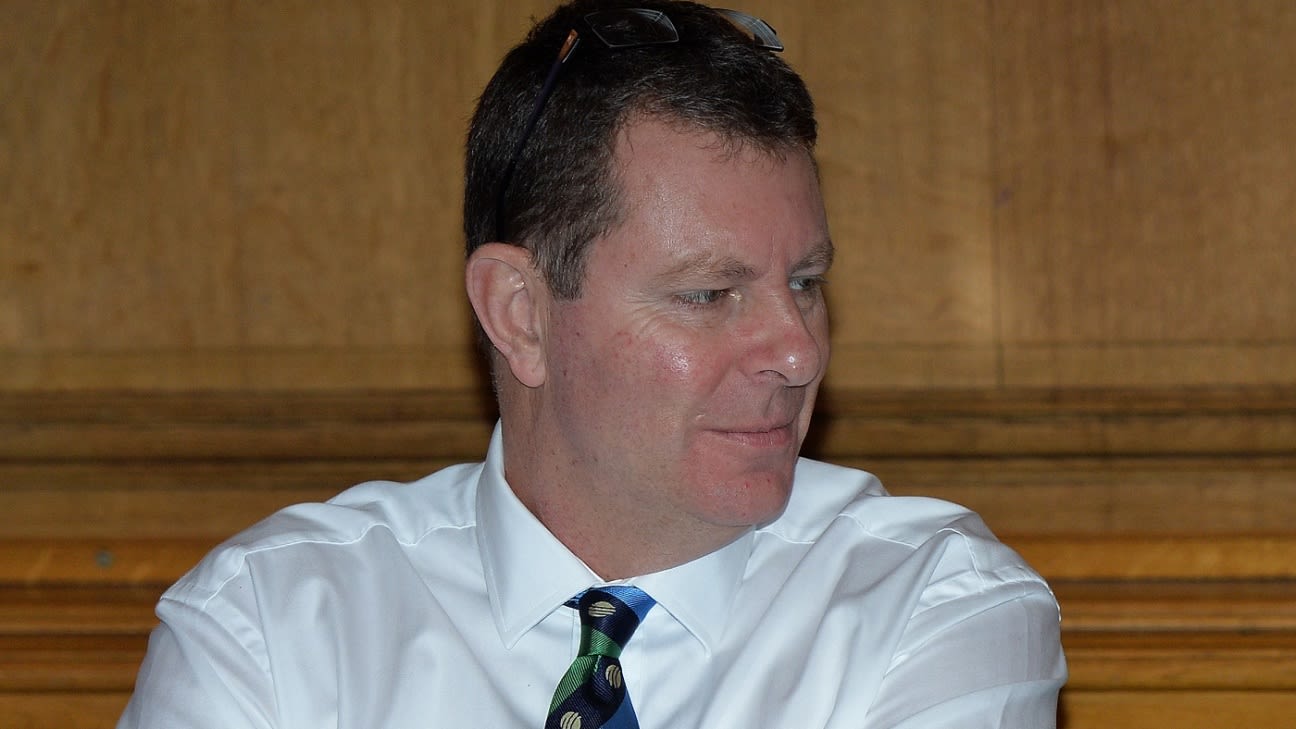
The white smoke is visible and after a long and fractious process, the ICC has elected Greg Barclay as its new chairman. Barclay, the NZC head, secured an all-crucial 11th vote from Cricket South Africa in a second round of voting, to beat Imran Khwaja, who had been the interim chairman after Shashank Manohar stepped down from the post in July this year.
Barclay had 10 votes to Khwaja's six in the first round of voting last week, but ICC stipulations meant he needed 11 - a two-thirds majority of the 16-person ICC Board. That vote arrived in the form of CSA this time and Barclay now becomes, after Manohar, the second independent chairman of the world body. It also ends a secretive and long drawn-out process which has brought to the surface clear divisions among those running the game, and how they see it being run.
Working through those divisions, deepest around the balance between ICC events and bilateral cricket in the next cycle will be front and centre of his briefs. That had become one of the major running themes in this election. Barclay, a well-respected administrator admired for his overseeing of the game in New Zealand, is a believer in the primacy of bilateral cricket.
"New Zealand Cricket's been pretty clear in our view around the bilateral playing arrangements, we want to make sure from an international point of view that there is relevance and currency and interest in the international programme. We certainly don't want to be totally reliant on an ICC events programme," Barclay told New Zealand's Radio Sport earlier this year.
Those comments had come after a meeting in Mumbai with officials from the BCCI, CA, ECB and CSA in which the five appeared to find common ground in wanting to push back against the ICC's wishes to squeeze an extra ICC event in the next cycle.
"The commonality in terms of the five is that we've been quite well voiced that we want to see our bilateral rights protected because we see genuine value in them," Barclay said. "The Black Caps are playing well at the moment, they're reasonably well ranked, they're getting good opportunity to play against some of the better countries and we're fortunate that we produce reasonable revenue out of it. So absolutely we want to see those bilateral rights catered for."
The other side, represented by Khwaja, wants to push for the primacy of ICC events in the next rights cycle. Last year, the ICC Board consented to include an extra global tournament in the next cycle, beginning after the 2023 World Cup, meaning that the next eight-year cycle (to 2031) would have one ICC global event (men's and women's) every year: two 50-over World Cups, four T20 World Cups and two editions of this extra event, which is understood to be in the 50-overs format and could be similar to a Champions Trophy, but with six sides.
A commercial lawyer by trade, Barclay has served as a director of NZC since 2012 - a position he will give up to become ICC chair. He was a director of 2015 Men's World Cup, held in Australia and New Zealand, and is a former board member and chairman of the Northern Districts Cricket Association. He is also an experienced company director holding board positions with various New Zealand and Australian companies.
"It is an honour to be elected as the chair of the International Cricket Council and I would like to thank my fellow ICC directors for their support," Barclay said in an ICC release. "I hope we can come together to lead the sport and emerge from the global pandemic in a strong position and poised for growth.
"I look forward to working in partnership with our members to strengthen the game in our core markets as well as grow it beyond that ensuring more of the world can enjoy cricket. I take my position as a custodian of the game very seriously and am committed to working on behalf of all 104 ICC Members to create a sustainable future for our sport.
"I'd like to thank Imran Khwaja for his leadership as acting ICC chair during a difficult period for the game and I look forward to continuing a close working relationship with him in the future."















 Phone: (800) 737. 6040
Phone: (800) 737. 6040 Fax: (800) 825 5558
Fax: (800) 825 5558 Website:
Website:  Email:
Email: 






